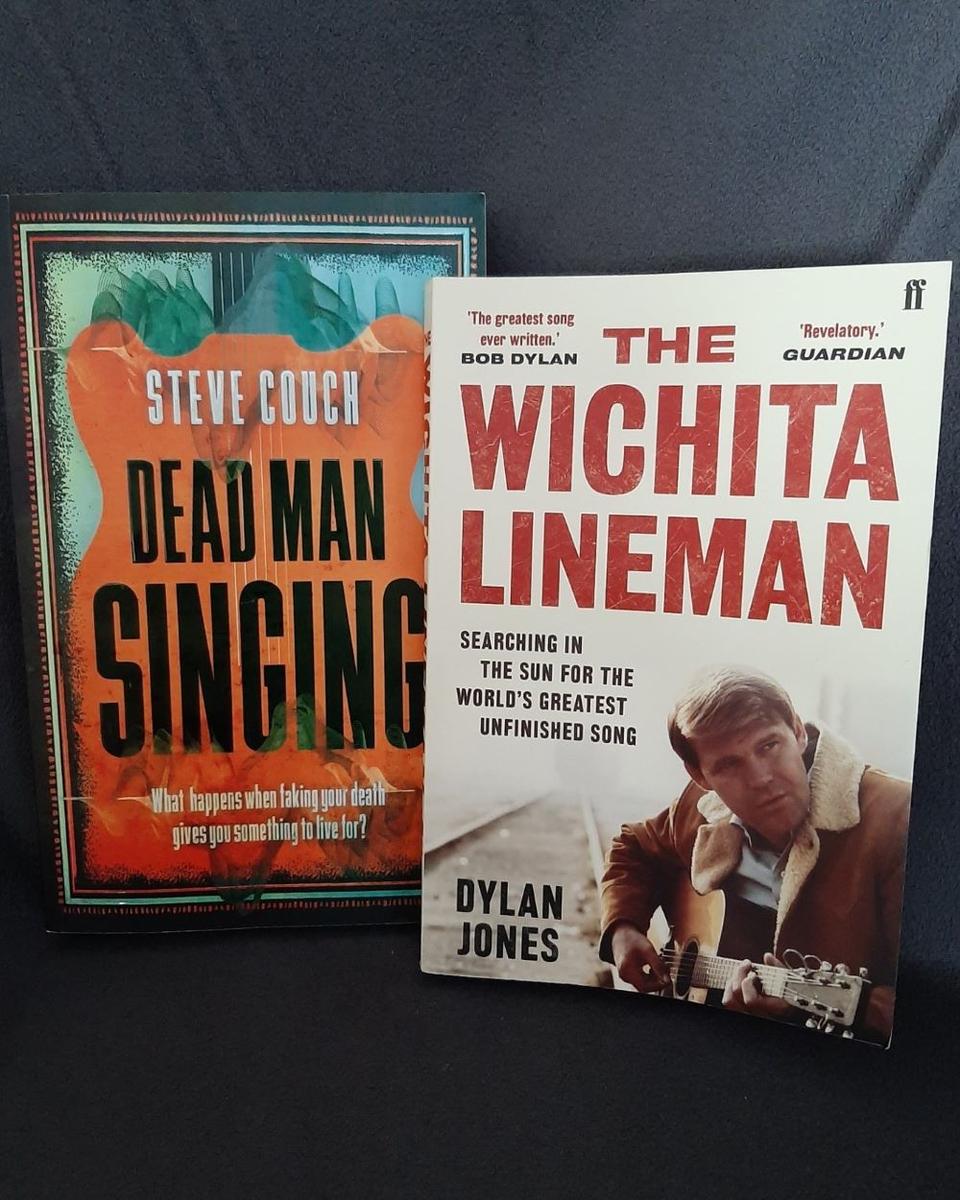
Wichita Lineman
4 days ago
Guests on David Hepworth and Mark Ellen’s Word in Your Ear podcast are regularly asked to name the best record of all time. I’ve got no expectation to ever be in that position, but if it happens, I’m ready. Glen Campbell’s Wichita Lineman is, unequivocally, the greatest. It’s just over 3 minutes of sublime perfection, sometimes described as ‘the first philosophical country song’. In the words of Billy Joel (who knows a thing or two about songwriting), it’s ‘a simple song about an ordinary man thinking extraordinary thoughts.’ It also famously features the most sparingly eloquent declaration of love in the history of modern song: ‘And I need you more than want you, and I want you for all time.’ Nothing else comes close. Generally speaking, Dave Masters from Dead Man Singing isn’t a fan of songs with strings and orchestration, but he made an exception for the Beatles, and I know he would have made another for Wichita Lineman.
I grew up regarding Glen Campbell as something of a punchline, a caricature figure responsible for what I saw at the time as cheesy songs such as Rhinestone Cowboy (I know better now). Even if his status as a country music Hall of Famer fairly reflects part of his career, there’s so much more to him than that. Prior to his solo years, he was a regular member of the legendary Wrecking Crew, the go-to session players earning a comfortable living in the studios of Los Angeles. Campbell played on more classic records than I’ve got room to list, but here’s a short selection: The Beach Boys’ Good Vibrations, You’ve Lost That Loving Feeling by the Righteous Brothers, I’m a Believer by the Monkees, Elvis Presley’s Viva Las Vegas, Simon and Garfunkel’s Mrs Robinson, California Dreaming by the Mamas and Papas, and even Frank Sinatra’s Strangers in the Night. Fellow Wrecking Crew alumni, drummer Hal Blaine, described Campbell as: ‘one of those great guitarists who could hear a part once and he had it down pat’, adding that arrangers loved that he ‘could play off-the-wall solos, just the wildest sounds you ever heard.’ Another wrecking crew regular, Leon Russell described him as ‘the best guitar player I’d heard before or since’. Apparently, it wasn’t unknown for producers to just write ‘Glen solo’ on their notes and leave the rest to him. If he'd never sung a note under his own name, he’d still have a huge place in the annals of music history.
Songwriter Jimmy Webb has declared that the fact he grew up to work with Glen Campbell is ‘prima facie evidence for the existence of God’. As a 14-year-old ploughing the fields in Oklahoma, Webb heard Campbell’s Turn Around Look At Me and was so moved that he crashed his tractor. That night, so the legend has it, he prayed that one day he would write a song half as good, adding a cheeky additional prayer for Glen Campbell to record one of his songs. That second prayer was answered when Campbell had a hit with Webb’s By the Time I Get to Phoenix. He pushed Webb for another ‘song about a place' to follow it up. Reluctant at first, Webb wrote Wichita Lineman in just two hours, during which time Campbell kept phoning to find out how it was coming along. Eventually, with only three quarters of the song down and unsure of how to fill the missing section, Webb sent Campbell a cassette of his work-in-progress. His reasoning was that if Campbell liked what he had so far, he’d try to finish it, but if not he could just give up and move on to something else. A few days later, when the two next met up, Webb reiterated that Wichita Lineman wasn’t finished, prompting Campbell to produce an acetate of the already recorded track and respond, ‘Well, it is now’.
It's been covered many times, by artists as diverse as Tom Jones, Ray Charles, Smokey Robinson and the Miracles, REM, Johnny Cash, reggae singer Dennis Brown, and – for music fans in the Bournemouth area – The Country Tones, with lead guitar courtesy of Dead Man Singing friend and associate Olly Hopper-Pay. I’ve even written my own light-hearted football-themed homage to it.
If you want to find out more, Dylan Jones has written a fascinating book about the song (how many songs merit a whole book about them? That fact alone speaks volumes for its place in our cultural world). The Wichita Lineman: Searching in the Sun for the World’s Greatest Unfinished Song is a fascinating, engrossing read, full of background, context and snippets of information about how this masterpiece came into being. It made excellent reading on my recent holiday, and like the song itself, it’s thoroughly recommended.
There are no comments yet, be the first to comment...
Your comment will first need to be approved before it is visible.